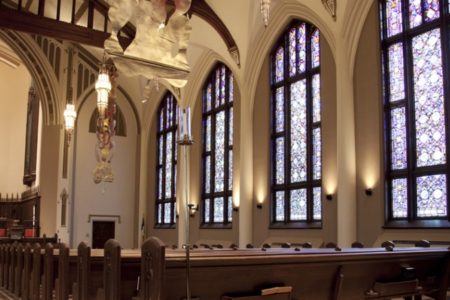Last weekend the Chapel, a secular arts venue owned and operated by Memorial Presbyterian Church, a PCA congregation in St Louis, MO, hosted Transluminate, an arts festival put on by an LGBTQ+ advocacy organization. The festival was a “celebration of transgender, agender, non-binary, genderqueer, and genderfluid artists.”
Login to read more
Sign in or create a free account to access Subscriber-only content.
